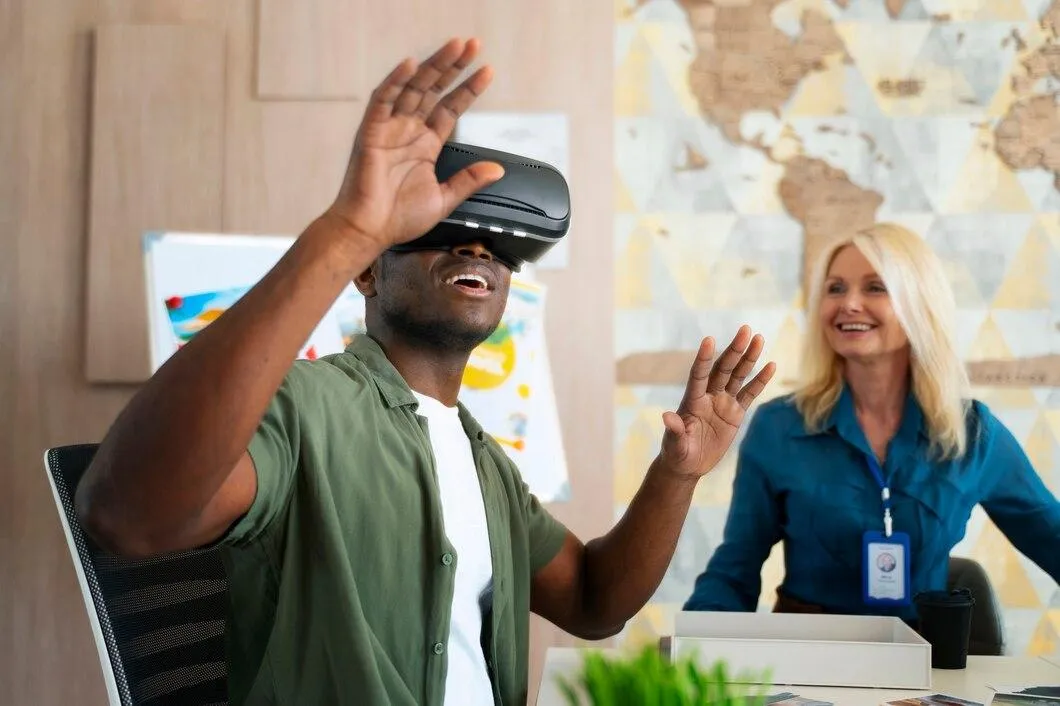
Blog

Blog

Exploring Tourist Destinations: How Virtual Tours Transform Hospitality Experiences
The hospitality industry is always evolving, and one major advancement is the use of virtual tours. These interactive tools allow potential tourists to experience destinations from the comfort of their homes. Virtual tours provide a 360-degree view of hotels, resorts, and attractions, giving users a real sense of what to expect before they book their trip.
Virtual tours are particularly helpful for travelers who want to explore options without committing to a visit. They can see the layout of a hotel room, check out the amenities, or even walk through a historical site virtually. This technology not only builds excitement but also helps in making informed decisions about travel plans.
As the demand for more engaging and informative content grows, virtual tours offer a unique way to attract and retain tourists. They play a crucial role in helping travelers decide on their next vacation spot by providing a detailed look at what various destinations have to offer. The immersive experience of virtual tours can make all the difference in a traveler's final decision, setting certain destinations apart from the rest.
Understanding Virtual Tours in the Hospitality Industry
Virtual tours use 360-degree photography and interactive elements to give users a complete view of a location. In the hospitality industry, these tours can showcase hotel rooms, resort amenities, or even local attractions. This technology allows potential guests to explore a destination in detail, enhancing transparency and trust.
The creation of virtual tours typically involves high-quality cameras and specialized software to stitch images together seamlessly. The result is a navigable, immersive experience that mimics actually being there. Hotels and resorts can highlight their best features, from room designs to pool areas, helping guests visualize their stay.
Virtual tours eliminate uncertainties about a destination. Guests can see exactly what they are booking, which reduces the chances of disappointment. For the hospitality industry, this transparency leads to higher satisfaction rates and fewer complaints.
Benefits of Virtual Tours for Tourists
Tourists gain several advantages from using virtual tours. These benefits make it easier to plan vacations and ensure a pleasant travel experience.
Informed Decision-Making: Virtual tours provide a detailed look at accommodations and attractions. Tourists can compare different options and choose the one that best meets their needs.
Time and Cost Savings: Virtual tours save time and money by reducing the need for preliminary visits. Travelers can explore destinations from home, making it easier to finalize their choices without incurring travel costs.
Enhanced Confidence: Many travelers are wary of booking unfamiliar places. Virtual tours boost confidence by showing exactly what to expect. This transparency leads to more informed bookings and greater peace of mind.
Accessibility: Virtual tours are accessible to everyone, regardless of physical ability. They offer a way to experience destinations that may be difficult to visit in person, broadening travel opportunities for all.
Pre-Travel Excitement: Seeing a destination beforehand adds to the excitement of the trip. Travelers can plan their activities better and know what to look forward to, enhancing the overall experience.
By providing these benefits, virtual tours serve as a valuable tool for tourists, helping them make better travel decisions and ensuring a more enjoyable experience.
Implementing Virtual Tours: Best Practices for Hospitality Providers
To maximize the effectiveness of virtual tours, hospitality providers should follow specific best practices. These ensure that the tours provide valuable information and an engaging experience for potential guests.
High-Quality Visuals: Invest in high-resolution images and smooth video footage to create a realistic and appealing virtual tour. Poor-quality visuals can turn potential guests away.
User-Friendly Interface: Make sure the virtual tour software is easy to navigate. Users should be able to move through different areas effortlessly and find the information they need without confusion.
Highlight Key Features: Focus on showcasing the most attractive and unique aspects of your property. Whether it's a luxurious spa, a breathtaking view, or spacious rooms, highlighting these features can make your property more appealing.
Include Interactive Elements: Adding interactive elements like clickable info points, booking options, and 3D maps can enhance the user's experience. These elements provide more depth and detail, helping guests make informed decisions.
Mobile Compatibility: Ensure your virtual tours are compatible with mobile devices. Many users will access the tour from their smartphones or tablets, so the experience should be seamless across all platforms.
Regular Updates: Keep the virtual tours up to date with any changes or improvements to your property. Stale content can mislead guests and create trust issues.
Measuring the Impact of Virtual Tours on Tourist Destinations
To evaluate the success of virtual tours, hospitality providers should track various metrics and gather feedback. Understanding their impact helps in refining the strategy for better results.
Engagement Metrics: Track how users interact with the virtual tour. Metrics such as time spent on the tour, number of clicks, and areas of interest provide insight into what attracts potential guests the most.
Conversion Rates: Measure the conversion rates from virtual tours to bookings. A high conversion rate indicates that the virtual tour effectively persuades visitors to book a stay.
Customer Feedback: Collect feedback from guests about the virtual tour experience. Surveys and reviews can provide qualitative data on how the tours influenced their decision-making process.
Website Analytics: Use website analytics to see if there’s an increase in overall site traffic and engagement since launching the virtual tours. Higher traffic usually means increased interest generated by these tours.
Compare Booking Trends: Analyze booking trends before and after implementing virtual tours. Look for changes in booking patterns, increases in occupied rooms, and guest demographics.
By monitoring these metrics, hospitality providers can gauge the effectiveness of their virtual tours, making adjustments as needed to optimize performance.
Plan Your Perfect Trip: The Power of Virtual Destination Tours
Virtual tours are transforming the hospitality industry, providing a powerful tool for both providers and tourists. By implementing best practices, hospitality providers can create engaging and informative virtual tours that help tourists make confident travel decisions. From high-quality visuals to mobile compatibility, attention to detail can significantly enhance the user experience.
Measuring the impact of virtual tours is equally important. Tracking engagement metrics, conversion rates, and customer feedback offers valuable insights, helping providers refine their strategies for better results. Virtual tours attract more visitors and improve overall satisfaction and trust.
To elevate your hospitality marketing with cutting-edge virtual tour services, Connects 360 LLC is here to help. Our solutions are designed to enhance visitor experiences and drive engagement. Contact us today to see how we can transform your hospitality offerings with our innovative virtual tour technology!

© Connects 360° LLC |
Privacy Policy | All Rights Reserved
Created with Connects 360 Web Services.

© Connects 360° LLC | All Rights Reserved | Privacy Policy | Created with Connects 360 Web Services.




